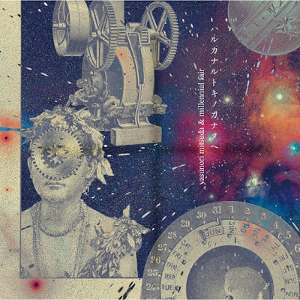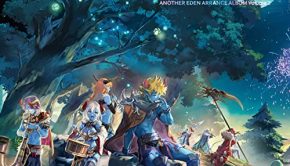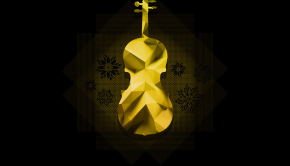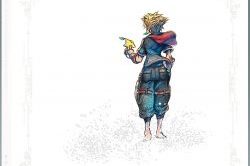Chrono Trigger & Chrono Cross Arrangement Album -To Far Away Times-
 |
Album Title: Chrono Trigger & Chrono Cross Arrangement Album -To Far Away Times- |
| Record Label: Square Enix |
|
| Catalog No.: SQEX-10501 |
|
| Release Date: October 14, 2015 |
|
| Purchase: Buy at CDJapan |
Overview
For the longest time, the Chrono Cross Arrange Album was a thing of legend. Always on the backburner, for years, many had given up on it. However, in 2012, a single track, which is present on this album, was streamed for a limited time on Procyon Studio’s website and reinvigorated the fans awaiting this ever-delayed album. Skip to 2015, when out of the blue, an arrangement album was announced. Contrary to Mitsuda’s original plans, the final album features music arranged from both Chrono Trigger and Chrono Cross. In the liner notes, Mitsuda points out that the three discs of the Chrono Cross Original Soundtrack were titled, “Cause,” “Unveiling,” and “Change”, and he always wanted to one day add another called “Connection” as an album dedicated to Kid and Schala, two characters in the series who are linked. As such, the focus of both Chrono Trigger and Chrono Cross makes sense. How does the end result turn out and will fans of the original soundtracks appreciate this album?
Body
The album opens up with an arrangement of the fan favorite, “Time’s Scar,” arranged by Tomohiko Hira of ZABADAK. Opening with a beautiful recorder interpretation of the original’s woodwind melody, it initially gives off a positive impression. This is reinforced by the addition of a beautiful vocal melody, sung by Koko Komine, with some excellent harmonies. Unfortunately, from there, the shift in tone, although similar to how the original progresses, is a bit jarring and borrows very liberally from the riffs heard in Led Zeppelin’s “Kashmir.” Granted, the arranger does a nice job incorporating the original melody into the strings during this section, but the arrangement itself doesn’t feel wholly original, given its clear influence. The guitar melody and subsequent solos towards the end of the arrangement are quite nice though and really remind me of the arrangements from Mitsuda’s CREID album.
Following “Time’s Scar,” Sachiko Miyano, known for her orchestrations for the Final Fantasy XIII trilogy and various Square Enix arrange albums, among others, tackles the vocal theme from Chrono Cross, “Radical Dreamers.” Sung by Sarah Alainn, whose debut game work was Mitsuda’s vocal for Xenoblade, it takes the acoustic and folksy nature of the original and transforms it into a contemporary pop ballad. While the vocal performance is quite nice, I feel the charm of the original is a bit lost in translation here, especially in the latter portion of the arrangement when it gets a bit too poppy with its liberal approach to the source material. The violin sections of the arrangement are top notch, however, and add a nice counter to the pop styling. Miyano’s other sole arrangement, a vocal rendition of the Chrono Trigger ending theme, “To Far Away Times,” also suffers a bit on the whole. While the first half of the arrangement is quite powerful, especially in the vocals, the way the arrangement ends, although following similarly to the original material, is a bit too much of a drastic shift. As such, I feel that that album ends on a fizzle rather than on a strong note, but others might enjoy this rendition nonetheless.
As for the other vocal themes on the album, all of which are sung by Laura Shigihara, the end result is also slightly mixed. By far the strongest vocal on the album is that for “Schala’s Theme.” Co-arranged by Shigihara and Mitsuda, the resultant arrangement manages to capture the mysticism of the original with its mysterious lyrics, piano, and strings work. Of particular note is the surprising inclusion of the melancholy “The Star Stealing Girl” from Chrono Cross, which works wonderfully to connect the two games together, through important characters in both games, as well as the concept of the arrange album. “Corridors of Time,” also co-arranged by Shigihara and Mitsuda, takes the original and turns it into a more melancholy rendition. There is a somber touch to the piano and strings, which are also mixed with some pop elements. It’s a pretty good interpretation, but compared to her performance in “Schala’s Theme,” the vocals are a bit on the cutesy side. Likewise, “On the Other Side / Epilogue ~To Good Friend~,” co-arranged by Shigihara and Kazune Ogihara, is a poignant vocal theme focusing on strings and piano. While I still find the vocals a bit on the cutesy side, the overall performance is much better and the lyrics really add to the original and conjure up images of the game.
In addition to the vocal arrangements, there are also instrumental arrangements, which like the vocal renditions on the album, present a mixed bag in terms of success. “Wind Scene,” arranged by Kumi Tanioka and Sachiko Miyano, is one of the highlights on the album. While the base melody is primarily played on piano, the real star of the arrangement is the various orchestral flourishes that Miyano creates to accentuate the melody and breath a nice and varied sound to the relatively simplistic piano rendition of the fan favorite. Unfortunately, two arrangements, done in a strings ensemble approach, by Natsumi Kameoka, provide the weakest efforts on the album. “Frozen Flame,” carries a very somber tone, however, a lot of the mysticism of the original is lost in this form. Similarly, “The Bend of Time,” which was streamed in 2012 for a brief period of time on Mitsuda’s website around Christmas, is a rather mediocre offering that, too, carries a more somber sound. They aren’t bad pieces, per se, but certainly the least inspired of all the arrangements on the album.
Finally, the star of the album, in my opinion, is Yasunori Mitsuda’s “Marbule.” His sole solo arrangement on the album immediately conjures up the Mitsuda of yesteryear. Opening with a slow and pensive accordion rendition of the melody, it quickly moves into a more jovial and Celtic inspired arrangement filled with violin and flute. Compared to the original, this one is so full of life and the cutaway to the violin playing the “Magical Dreamers” motif heard in the original, not to mention the amazing performance during the violin solo, is quite special. This is the one song on the album that when I hear “Yasunori Mitsuda & The Millennial Fair” I imagine in my head.
Summary
When it comes to the actual content of To Far Away Times: Chrono Trigger & Chrono Cross Arrangement Album, I’m torn. Given the strength of much of the source material, the album itself is fairly enjoyable. However, that being said, when billed as Yasunori Mitsuda & Millennial Fair, it is far from the expectations perceived, given the largely well-received arrange album for Xenogears, titled CREID. The biggest weakness this album faces is that of an identity crisis. Whereas the scope of Yasunori Mitsuda & Millennial Fair’s CREID was one that took on a world music approach, thanks to Mitsuda’s strength in Celtic and other ethnic styles, this album, while featuring a similar mix of instrumental and vocal tracks, fails to see such success. The end result is an album with poppy vocal themes, sometimes overly so, orchestral music that doesn’t do anything particularly creative, with only a few tracks that remind me of what I think Millennial Fair are capable, one unsurprisingly arranged by Mitsuda himself and the other by Zabadak, despite its flaws. In the end, fans of Mitsuda’s music for the series will certainly appreciate the album, as I do, but I honestly think that it would have been a much stronger album if Mitsuda did all of the arrangements himself, even if he still kept the scope and concept of the album dedicated to both games in the series.
Do you agree with the review and score? Let us know in the comments below!
3.5
Posted on October 28, 2015 by Don Kotowski. Last modified on January 19, 2016.














